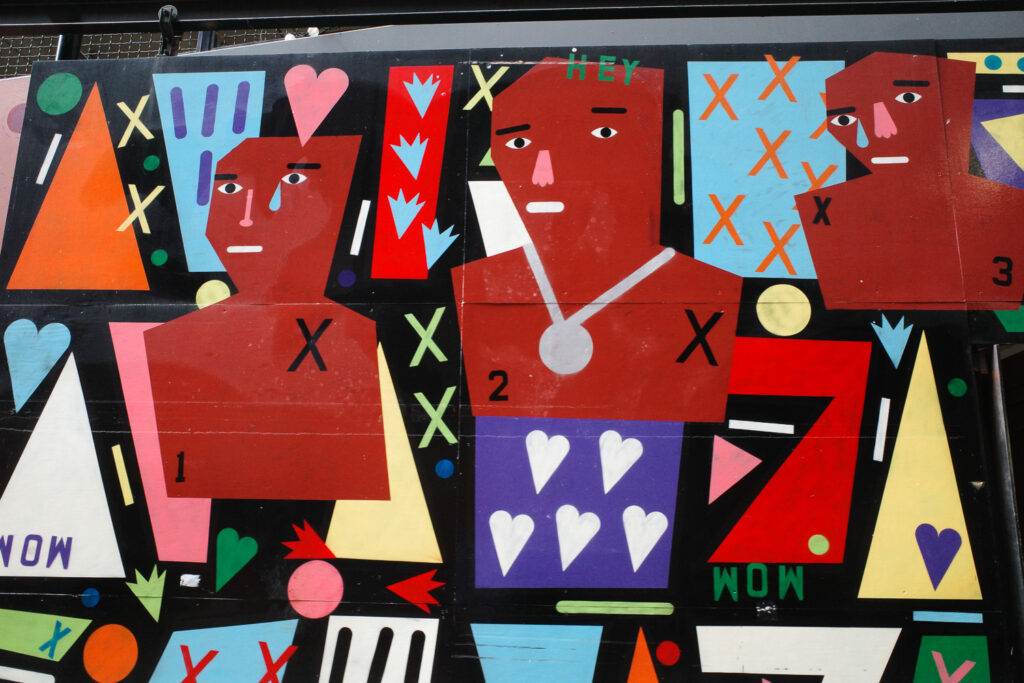Connor Stalions, the alleged University of Michigan Football sign-stealing mastermind, is in the news yet again. This time, for a good reason: The Netflix documentary, “Untold: Sign Stealer,” is dominating the charts, currently the No. 2 most-watched movie on Netflix in America. No surprise there; Americans love football, and they love a good scandal.
But here’s what everyone refuses to spell out: Connor Stalions did nothing wrong.
OK look, maybe he traversed the gray areas of an arbitrary set of rules that, really, every major college football program seems to cross. Maybe he was too good at his job, too good at deciphering the signals other teams use to communicate their plays. Maybe he was too organized, with his meticulous spreadsheets and Google Drive folders. Maybe he was too dedicated to “the team, the team, the team,” relentlessly pursuing his lifelong dream to coach at Michigan.
But none of the allegations hold real weight under any reasonable standards of evidence. There are allegations, but no hard facts. The only fact is the former Marine was damn good at his job.
Stalions was a high achiever who systematized a shadowy, underground method of intelligence collection and deception. Before him, you get the sense that all of this happened in much more boomer ways. The occasional phone call, some journals of hand-written notes, cloistered trade secrets. He took it to the next level, with a “Rain Man”-esque attention to detail and the acuity to break the information down and organize it.
There’s nothing in the rules against deciphering opponent signs. The allegations of impropriety stem, in large part, from two accusations: that Stalions attended opponents’ games in-person to scout, and that he sent others to games to record them beyond the scope of official broadcast footage.
In-person scouting during opponents’ games is forbidden. This much is known and acknowledged. But the allegations are so flimsy. One photograph of a man on the sidelines at the MSU-CMU game in a hat, sunglasses, and goatee? Supposedly, Stalions in disguise. I don’t care what he supposedly told Dave Portnoy—prove it was Stalions, NCAA.
Nor can you prove that he sent people to games to scout. The only evidence is some public Venmo transactions between him and his associates (none of which used official program funds, I might add). Stalions admitted to giving tickets to friends, buying many himself that he couldn’t attend, and the record shows him selling a considerable number of tickets on the secondary market as well.
When he was still in the Marines and began assisting as a staffer at U-M, this man used to fly himself out from his base in California, on his own dime, every weekend, just to be at the games. This is a man who, very plausibly, simply lives and breathes football to such an insane degree that he’d have extra tickets.
And if you’re still not buying it, guess what—prove it. Prove that the folks who used his tickets to attend games contributed in any meaningful way to the sign deciphering program. Even if, as Stalions admitted, “friends sometimes sent him some videos from the games,” can you prove that those videos were used to analyze signs? Nope.
Say what you will about him, but Stalions is smart. He kept his sign deciphering activities, at least plausibly, within the gray areas of the rules. The problem is that the NCAA doesn’t care about due process or any legal standards of evidence. Bureaucracies exist to protect themselves above all, and they see high achievers of any sort, willing to push boundaries, as a threat. Academia especially tries to level everyone to benign standards of mediocrity, punishing strivers and overachievers. The NCAA in particular is notoriously corrupt and cloak-and-dagger, a multi-billion-dollar endeavor resting for decades on the efforts of unpaid student athletes.
Consider the media circus as well. The second the allegations dropped, reporters swarmed like flies, eager to take down the burgeoning champs. Journalists need stories, and boy this was a great story, guaranteed to get traffic. In some cases, personal animus rose above any attempt at journalistic integrity. Ohio State fans (many in the media) were out for blood from the start.
Come to find out, this all originated from a clandestine spying operation, illegally surveilling the Michigan Football program, which likely hacked Connor’s private emails and database. Ohio State head coach Ryan Day’s brother runs his own private investigation firm, don’t you know. Since we’re apparently in the habit now of considering coincidences as proof, that’s all you need to know. Ohio State ran an actually illegal spying program of its own and leaked spurious allegations to the media and the NCAA.
At any rate, Stalions did nothing wrong. Not within the confines of the vaguely defined rules, at least. Nothing provable, nothing definitive. Michigan went on to win the championship without his efforts, anyways, as we all know. He made a grand effort, he pushed the limits of what his low-level staffer position demanded and was torn down by opponents and media flunkies desperate for any hit piece on Michigan.
Hurt though he is, Stalions cared far more about Michigan winning the championship than his own ambitions. So he fell on his sword, a Michigan Man to the end.
Bobby Mars is an artist, alter ego, and former art professor. Follow him on X at @bobby_on_mars.




